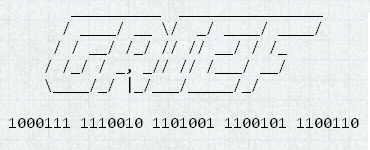Introduction
| Introduction | |
| GRIEF - The Glorious Reconfigurable Interactive Editing Facility | Firstly GRIEF is primarily a source editor and is designed for manipulating pieces of code, although it is capable of formatting and printing documents like a word processor. |
| Macro Language differences | On the face of things GRIEF looks and feelings like standard C, yet the following differences between the standard implementation of the C language and the GRIEF Macro language should be observed. |
GRIEF - The Glorious Reconfigurable Interactive Editing Facility
Firstly GRIEF is primarily a source editor and is designed for manipulating pieces of code, although it is capable of formatting and printing documents like a word processor.

It provides commands to manipulate words and paragraphs, syntax highlighting for making source easier to read, and macros for performing user-defined batches of editing commands.
Supported Platforms
Current support platforms.
- Works on most POSIX-like systems (Linux, Solaris, AIX, HP/UX) in either a console or X11/xlib.
- Windows (Native, Cygwin and MinGW).
- Mac OS/X (last build 2012).
- DOS (DJPGPP - last build 2002; minor work required).
What is a Macro
The GRIEF Macro language gives you the ability to modify and secondary extend much of this editing environment to suit your needs.
The language syntax is based on a C-style module which should allow most users to quickly familiarise themselves.
Sections
The following sections detail the specifics.
Goals
GRIEF has a long history and is being maintained and developed with the primary goal of being an enhanced console based BRIEF clone.
The development of GRIEF is an on going process, with these some of the expected additional features.
Future Features
- LUA language binding; providing access to the large set of pre-existing LUA based applications.
- Macro debugger; similar to the functionality available within the original BRIEF implementation.
- Minimal GUI interface, most likely QT5+ based.
- Alternative syntax highlighting engine(s); examples include GtkSourceView, highlighter and Kate.
- Code Folding.
- CLang integration, code completion.
- JavaScript binding, most likely SpiderMonkey or V8; the long term goal making Javascript the primary language for new macros.
- EditorConfig support (http://editorconfig.org)
- plus may more ...
Macro Language differences
On the face of things GRIEF looks and feelings like standard C, yet the following differences between the standard implementation of the C language and the GRIEF Macro language should be observed.
Data Types
Only the standard C data-types int and float/double are supported.
In addition to these GRIEF supports a list and string type, plus a polymorphic container type declare which may hold any of the supported data-types.
No pointers, complex types (‘struct, unions and bit-fields) nor typedefs are supported.
The register storage class is not supported.
GRIEF does not support the C style cast mechanisms; note automatic parameter coercion shall occur when passing arguments to functions.
External declarations
Both function and variable declarations maybe hidden within the scope of a named module. There is no equivalent construct of module’s in C, yet these can be compared to C++ namespaces.
Function declarations
A functions parameter maybe declared as optional regardless of their position within the parameter list, unlike C which only allows the trailing.
The NULL value is passed by the caller to represent an argument which was omitted.
Similar to C++, parameters maybe declared as references and assigned default values.
Function parameters
A functions parameter can be declared without specifying its names. Instead parameters can be retrieved and optionally prompt the user anywhere in the function with the primitive get_parm; optional parameters may only be handled in this fashion.
In addition passed parameters can be modified using the put_parm primitive.
Similar to C++, reference parameters can be created using the primitive ref_parm.
Furthermore, as the result of this interface parameters are passed using lazy evaluation. That is the arguments to a function are not evaluated at the time a function is called, as is the case with the C language. Instead they are evaluated at the time they are referenced within the invoked function, like with most Lisp style languages. This may leading to what may seem at times unexpected results, so time should taken to understand this concept (See: Lazy Evaluation).
Replacement Functions
There is no equivalent construct of replacement functions in the C language. C++ function overloading is a similar construct.
GRIEF Function declarations
Internal primitives need not be prototyped, as their definitions are builtin to the compiler.
Variable Scoping
Within GRIEF variable access utilises dynamic scoping at run-time; dynamic scoping is similar to the scoping rules of Pascal rather than C permitting macros to access variables declared within their callers (See: Scope).
Goto Statement
The goto statement is not implemented.
Switch Statement
Unlike the C language, switch statement control does not flow from one case group to next. In other words there is an implied break at the end of each case group; when the statements executed against the group are complete the switch statement is exited.
The break statement can be used at the end of each case group to denote this fact; yet is only needed to terminate loops constructs (ie. for, foreach, do and while).
Unlike C, string literals maybe be used for either the switch-expression or the case-expressions.
Enumerations
GRIEF permits both integer and string-literals to be assigned to an enumeration constant.
sizeof
The sizeof statement is not implemented.
Dynamic memory allocation and pointers
Either the memory allocation functions malloc, calloc, realloc nor free are available, in addition pointers are not supported.
Dynamic components can be managed using list’s.
Miscellaneous
Both C multi-line and C++ single-line comments are supported.
Trigraphs are not supported.
$Id: introduction.txt,v 1.6 2014/11/27 18:08:41 ayoung Exp $
To send feedback on this topic email: griefedit@gmail.com
Copyright © Adam Young All Rights Reserved.